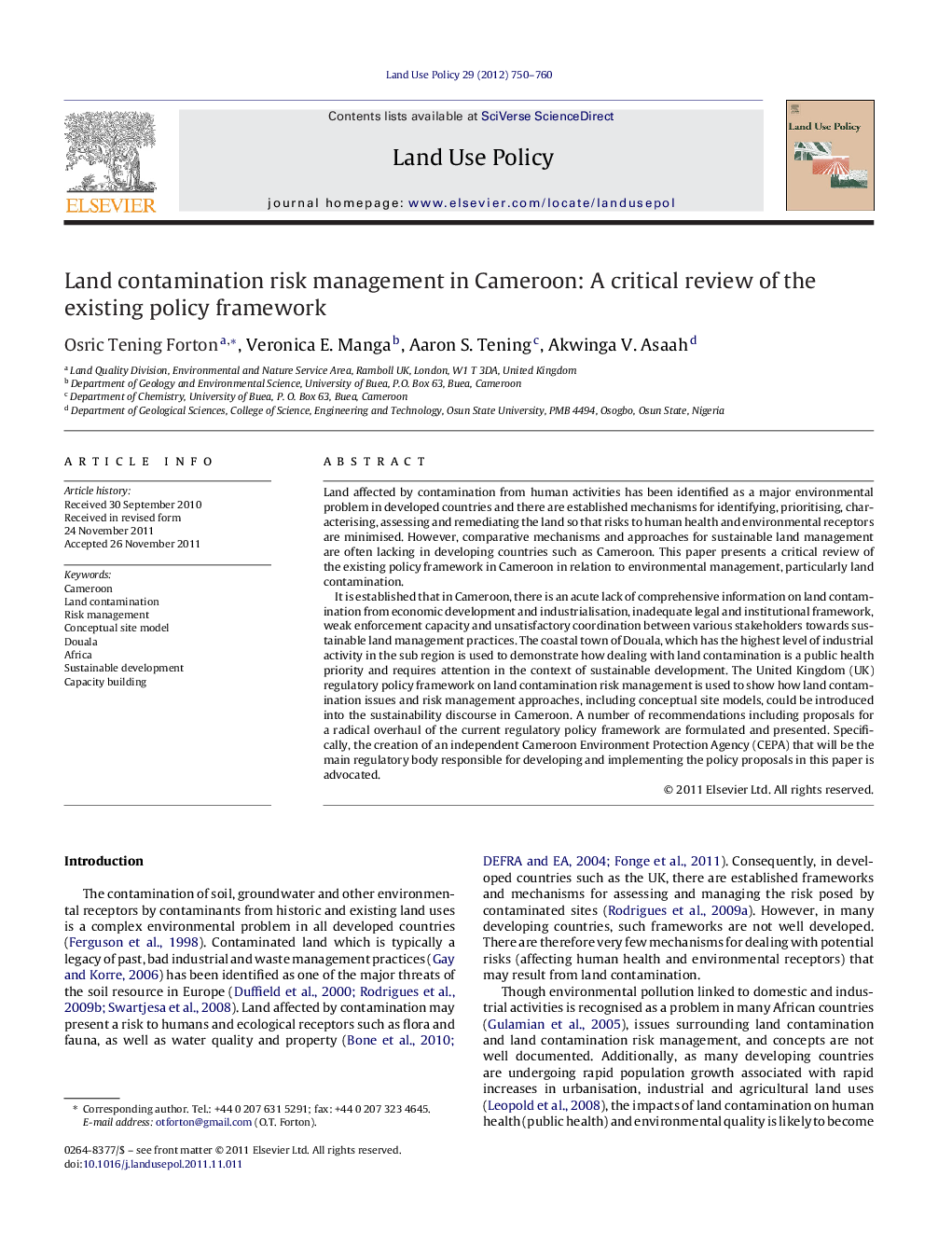| Article ID | Journal | Published Year | Pages | File Type |
|---|---|---|---|---|
| 93327 | Land Use Policy | 2012 | 11 Pages |
Land affected by contamination from human activities has been identified as a major environmental problem in developed countries and there are established mechanisms for identifying, prioritising, characterising, assessing and remediating the land so that risks to human health and environmental receptors are minimised. However, comparative mechanisms and approaches for sustainable land management are often lacking in developing countries such as Cameroon. This paper presents a critical review of the existing policy framework in Cameroon in relation to environmental management, particularly land contamination.It is established that in Cameroon, there is an acute lack of comprehensive information on land contamination from economic development and industrialisation, inadequate legal and institutional framework, weak enforcement capacity and unsatisfactory coordination between various stakeholders towards sustainable land management practices. The coastal town of Douala, which has the highest level of industrial activity in the sub region is used to demonstrate how dealing with land contamination is a public health priority and requires attention in the context of sustainable development. The United Kingdom (UK) regulatory policy framework on land contamination risk management is used to show how land contamination issues and risk management approaches, including conceptual site models, could be introduced into the sustainability discourse in Cameroon. A number of recommendations including proposals for a radical overhaul of the current regulatory policy framework are formulated and presented. Specifically, the creation of an independent Cameroon Environment Protection Agency (CEPA) that will be the main regulatory body responsible for developing and implementing the policy proposals in this paper is advocated.
► Despite the evidence, land contamination is not identified as a priority area for assessment. ► In Cameroon, a radical overhaul of the existing policy framework is required. ► An independent body for formulating and implementing policy is advocated.
